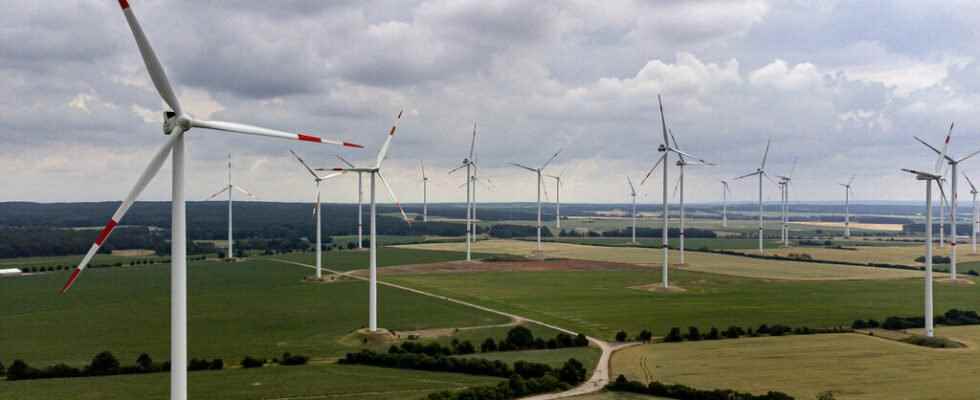Germany is turning the page on the Merkel era. The Bundestag will elect Olaf Scholz as Chancellor on Wednesday. The Social Democrat will lead a tripartite government. A coalition which has adopted an ambitious climate program and which anticipates the end of coal-fired power stations.
The exit of coal is planned “ideally” for 2030 and no longer for 2038. Germany will have almost half the time to get rid of this fuel, which represented 23% of its electricity mix last year.
It will not rely on nuclear power. To achieve this, Berlin has been committed since the early 2000s to the release of the atom. Its last plants are due to be disconnected by the end of next year.
Completing the objective will therefore be difficult, but it remains feasible in the eyes of an expert.
The first lever available to Germany is to massively develop renewable energies. The coalition agreement set a target of 80% of renewable energies in the country’s electricity mix by the end of the decade. By comparison, last year they represented 45% of the total.
This will require significant investments to expand the photovoltaic park, investments and regulatory obligations. New commercial properties will, for example, have to accommodate panels on their roofs. The future government also intends to reserve 2% of the territory for wind power and increase the capacity of offshore wind power..
► Also to listen : The climate, a key issue in the post-Merkel era
Another lever will be to offset part of the production of coal-fired power stations with gas. Experts do not all do the same analysis. One speaks of a “plan B”. During the discussions, an exit from gas by 2040 would have been mentioned. The prospect of an exit from gas, now presented as a transition solution, on the contrary leaves an energy engineer perplexed, who has difficulty seeing hydrogen take its place. ” If they don’t succeed, he warns, the Germans will remain dependent on gas “.
The delicate task of energy transition must be led by Green Robert Habeck, who will be both Minister of the Economy and Climate Protection.
